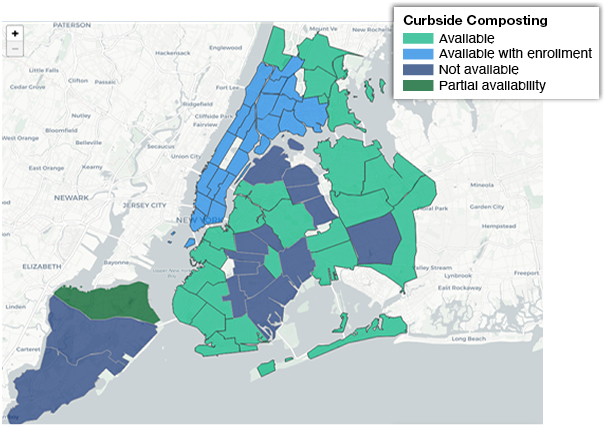The New York City Council issued a policy paper this month, “Securing Our Future: Strategies for NYC in the Fight Against Climate Change,” that focuses on four key areas: Resiliency; Energy and Emissions; Sustainable, Circular Economy; and Green Jobs Pipeline. Within each area of focus, the paper identifies goals to achieve, and includes strategies within each goal for the City to consider. Waste management is within the Sustainable, Circular Economy section. Notes the paper, “despite the City’s commitment to sending zero waste to landfill by 2030, about 80% of residential waste is not being diverted. If we are to significantly decrease waste going to landfill, the City must create and implement a comprehensive plan for diversion. This plan must also include data collection to measure the City’s success.”
Among the City Council’s goal and strategies discussed are:
- Consider legislation requiring the City to develop a plan to achieve zero waste and to periodically report on its progress toward that goal. Legislation could include measures to increase current diversion rates by material and eliminate materials from the waste stream that are not easily recyclable.
- Handle organic waste in a way that supports a circular economy. This includes source separating all organic material, and collecting and processing it so that the material can eventually be beneficially reused.
- Consider legislation providing all New York City residents with access to organics recycling. As the expansion is rolled out, the source separation of organic waste should become mandatory. (In October 2013, the City Council passed Local Law 77 of 2013, requiring the NYC Department of Sanitation (DSNY) Commissioner to establish voluntary pilot programs for organic waste collection for residences and schools. Expansion of the program was halted in Spring 2018). In districts that currently have organics collection, bins would be given to each building that receives DSNY pick-up, as opposed to current practice that sometimes requires building management approval for program participation. DSNY should also begin to expand pick-up in other districts, providing an organics bin for each residence.
- Implement an education campaign focused on properly source separating organic material. Include a discussion of the benefits of source separation, such as reduced rodent visibility. The City-provided brown organics bins are much more protective against rodents than traditional garbage bins and bags, and removing food scraps from garbage bags could reduce rat visibility around homes.
- Use of in-city anaerobic digesters at wastewater treatment plants for organics processing should be expanded and encouraged. Processing locally reduces transportation-related emissions, as organic material does not need to be trucked out of the City. Both the biosolids and biogas produced can be beneficially reused. The City Council will consider legislation mandating use of this gas locally and prohibiting burning off the gas during the digestion process. Council also will consider legislation requiring the City to beneficially reuse a percentage of biosolids, thereby diverting this material from landfills.











